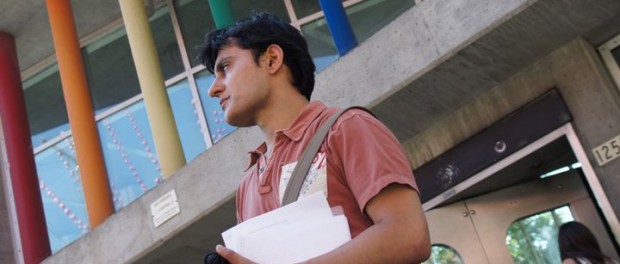Through my Brown Gay Lens : Drag Kings and the Case for Un-gendering !
The first time I heard about Drag Queens was when I put on my mum’s clothes and stood before a mirror. Someone walked into the room and wondered why I was dressed in “Drag”? Given my six years, I knew little of what that meant, but outside my adolescent ideas about gender and its expression, I was really just playing out what was inside of me, hidden somewhere perhaps.
As part of my early exploration of my city of adoption Montreal, I was introduced to Dukes of Drag and it completely turned my idea of drag on its head. It opened my world to questioning gender normativity in the truest sense.
It was sometime in 2006, the dead of winter (that’s what we call December in Canada), I was walking to La Sala Rosa on Boulevard St. Laurent. My friend told me that “Meow Mix” was the most fun show they had been to and it was all about gender-bending performances by some amazing local artists. It was that night when Nat King Pole became my favorite superstar. The brazen, relentlessly entertaining and a stunning performer took the top slot in my celebrity handbook. I wasn’t completely oblivious to the critique of gender and everything that came with its normativity in society, but I did begin my conscious journey of trying to understand what it meant and what purpose it served.
I didn’t start at the outset with any opposition to gender or gender normativity. I was very open to learning more about it and really digging deep into all its implications. I was the product of a socialization where my “masculinity” was relevant to everything I did (what I wore, how I walked, how I spoke, etc., etc., etc…) and my sexual orientation brought more pressure to conform. In my process of analysis and self-learning, I was obviously going to stumble on ideas of gender construction and gender roles. I began looking around me and wondered how gender roles really played out in my life and how immune, no ignorant I was to their impact; enough that my awareness of gender roles began to scare me. I saw it everywhere, the work we did, the relationships we formed, how we socialized, how we managed those relationships, how we represented ourselves through the arts and everything else, how we saw people, the characteristics we attributed to everyone, everywhere, everything had a huge gender imprint on it. I was left petrified.
I was flabbergasted how everyone seemed boxed into one “identification” or another and how somehow it had a gender role assigned to it. I somewhat appreciate that some people find gender identifications comforting and safe perhaps, but I began feeling claustrophobic. I felt I couldn’t breathe confined by my gender role.
I still remember being told by someone to not act like a girl or be a man and play more sport. I was all of five, six… While as a young person I saw it as part of growing up and learning how to take what life throws at you, in hindsight I find the trauma it would have caused so irreparable. I was just another victim of the perpetuation of a mindset, a social construct, which had been in existence for as long as our societies have existed. The enormity of that power and what that meant bothered me. And I think in that flip moment I turned rogue.
Outside of the worthy adjectives of suppression, control, segregation, discrimination, perpetuation of (m) privilege, my analysis of gender and its role in our social system bore no other deduction. I wasn’t sure while I completed a government form of why it mattered if I choose “M” or “F”. Barring obviously the fact that I could dress in the other gender’s clothes and carry a nuclear weapon in my undershirt and possibly need the “M” on my passport to not pass through undetected.
When getting entertained by Nat King Pole, I laughed, I rolled, but it wasn’t just a fun night of dance and frolic. There was an essential political statement right there. In that gender-bending narrative I saw a slight to the fictitious system of gender that surrounded me. I was able to revel in the fact that I didn’t want to be confined by the binary anymore. The attributes that made me be a “man” sometimes and a “woman” at others and “neither” more often were fluid and could be owned and disowned at will.
But normative people argue that gender is needed for…?????? Well maybe we can ask them again, coz I don’t know the purpose of it.





